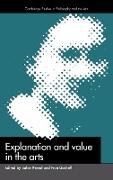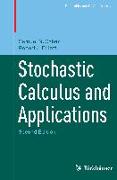Explanation and Value in the Arts
BücherAngebote / Angebote:
In Explanation and value in the arts, art historians, literary theorists, and philosophers explore the sources of interest in literature and the fine arts, the intimate relation between aesthetic and other values, the involvement of values in the explanations of works, and the determining role of power. The first chapters consider the construction of value in works. Michael Podro analyzes the density or presence of the medium, arguing that explanations must account for this significance or fail to grasp value. Walter Biemel and Wayne C. Booth propose that philosophy and morality are crucial to aesthetic valuation. The following chapters examine the construction of value in the study of the arts. Mark Roskill looks at what "extra-aesthetic" considerations make particular works historically important, and contends that literature and art history invite distinctive criteria. Svetlana Alpers assesses the contribution of Panofsky, among others, to show how methodological commitments in art history import assumptions about value, while Gregg Horowitz argues that the study of works of fine art is something other than a merely theoretical enterprise of trying to grasp the nature of objects from the past. Questions of power underlie Jon Elster's contribution, an analysis of the nature of creativity, and Pierre Bourdieu's, a philosophical and sociological construal of the principles for an explanation of cultural objects. In the final chapters, Richard Eldridge and Noel Carroll take up this theme, examining the nature and role of ideology.
Folgt in ca. 15 Arbeitstagen




